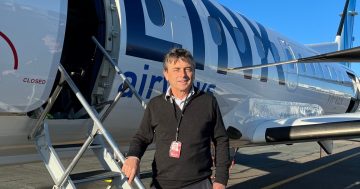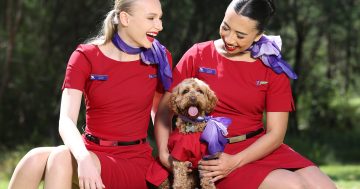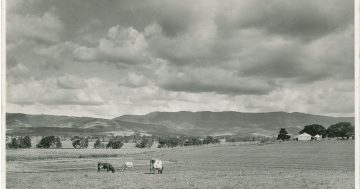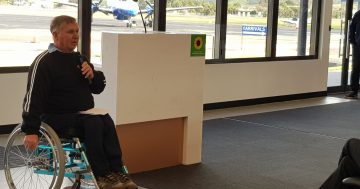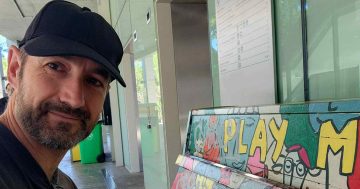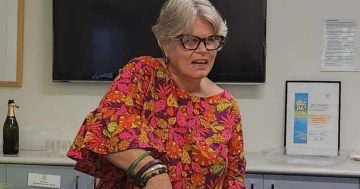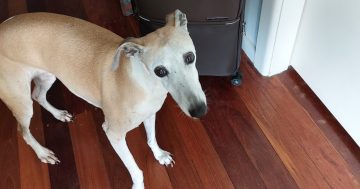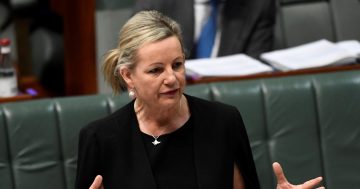
Link Airways pilot Alana Biryukov fell into flying and now sits in the captain’s seat. Photo: Tony Leeder-Smith.
Alana Biryukov’s husband had no idea the birthday gift he gave his wife for her 23rd birthday would dramatically change her life.
It was a voucher for a trial instructional flight which he thought was a scenic joy flight along the Sunshine Coast in Brisbane.
“It turned out to be more of a beginner’s lesson in flying with a chance to try out the controls,” said Alana.
“Afterwards, I told my husband he should have bought me perfume because I was ready to quit my office job to become a pilot.”
And she meant it.
That was 2019, and six years later after intense training, the now Captain Alana can be seen twice a week flying passengers between Illawarra and Brisbane in a Link Airways Saab 340B.
Alana is one of the growing number of female flight captains in NSW since Deborah Lawrie won a landmark sex discrimination case in 1980, allowing her to work as a pilot for the now defunct airline, Ansett.
Through her perseverance, it is now estimated about seven per cent of pilots in Australia are women.
“We owe a lot to Lawrie because she proved that piloting has little to do with gender and more to do with skill-set and personal traits,” said Alana.
“Most pilots I know – male and female – are level-headed and calm with an appreciation of structure and checklists because safety is everything in aviation.
“I’m a captain who likes to debrief with my team after every flight to ensure we don’t become complacent.”
Although based in Brisbane, Alana said Shellharbour Airport at Albion Park was one of her favourite airports.
“There’s a lot going on with student pilots coming and going, and you also have to take into account the westerly winds coming over the escarpment,” said Alana.
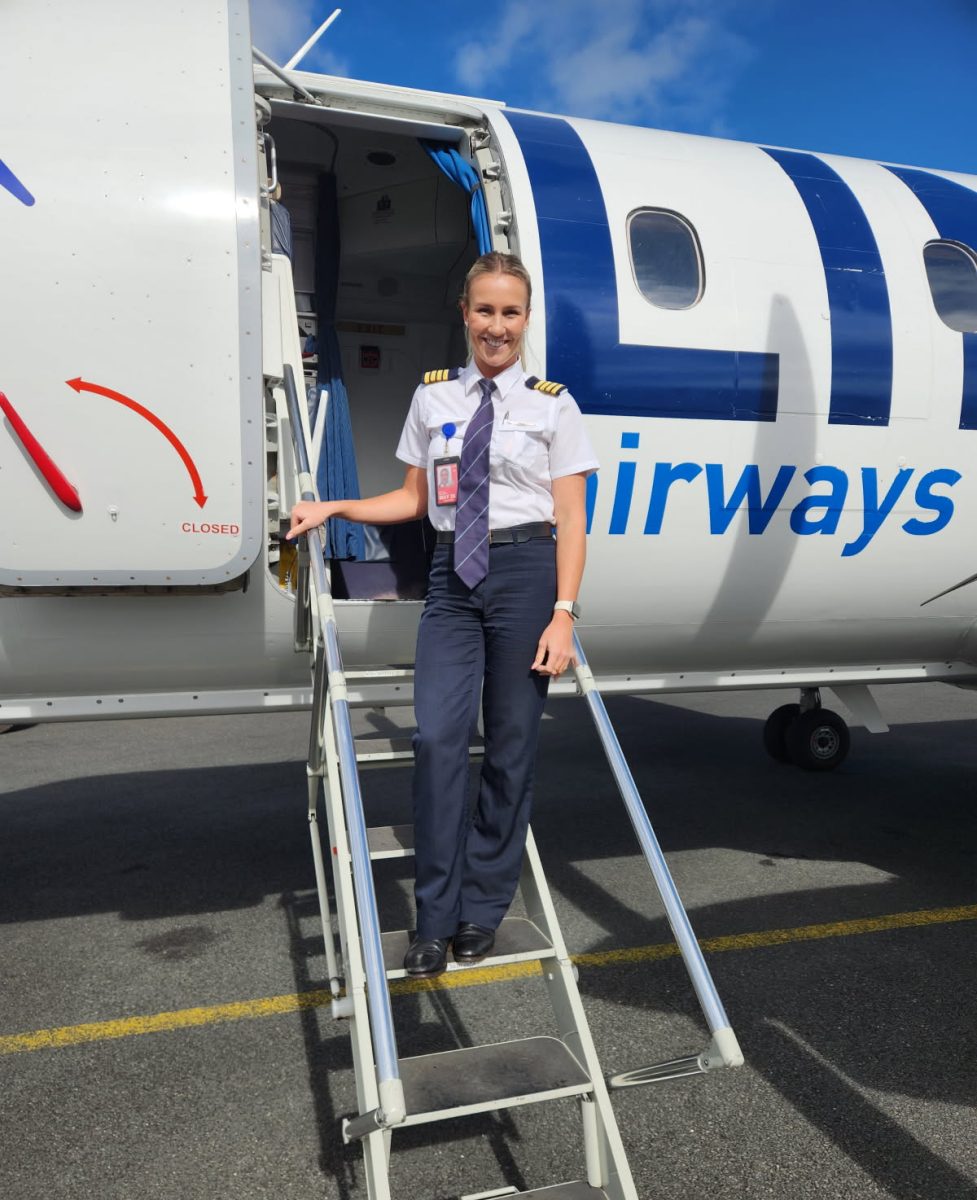
Mikki Williams says she couldn’t be happier in her job as a pilot. Photo: Tony Leeder-Smith.
“It’s challenging in a good way because it’s a moving puzzle that is gratifying to get right.”
Captain Mikki Williams, 25, is another female Link Airways pilot who flies into Albion Park every week from Brisbane.
Mikki initially set out to work in sports medicine, but at 19 she decided to switch to aviation and she said she couldn’t be happier.
“I often catch up with old friends who are still jumping from degree to degree or job to job in search of a career they love, so I’m grateful I found my happy place at a young age,” she said.
Mikki was acutely aware that Deborah Lawrie bravely cleared the path for her generation and she felt that shift was accelerating with more women in many areas of aviation from pilots to ground controllers.
“I have met Deborah a few times, and I have the utmost respect for her,” said Mikki.
“I look back now and realise that succeeding in a job like ours involves a lot of intense training but even more important is having confidence in your own ability.
“In the early days it’s easy to be overwhelmed by the control panel, but I got over that by thinking if you break down one instrument at a time about what it does, it can’t be too hard.
“And that got me through my entire training.”
Mikki flew her first passenger flight as a first officer three years ago and her first flight as captain in January this year, and everything went smoothly.
But the technical side of flying was not the only challenge for pilots, said Mikki.
“You can have the best training in the world, but without self-belief, you’re going to struggle to lift off the ground,” she said.
“I had great trainers and their encouragement was an enormous confidence boost.”
On a more sombre subject, the question left for last produced surprising results.
Do Alana and Mikki watch airline disaster documentaries that rarely end well?
“Absolutely,” said Alana. They are a great learning tool for pilots in figuring out what went wrong.
“Our job is often about problem-solving so watching those forensic investigations that track the cause of accidents is educational gold.”
Mikki agreed.
“I love watching them because people make mistakes and we would be remiss in not studying them and the systems that went wrong so that we can ensure they never happen again,” she added.









